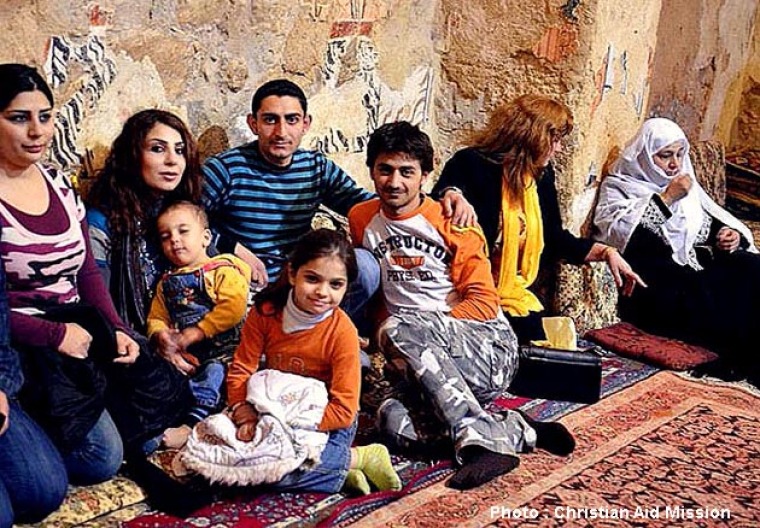Syrian pastor won't abandon his church, despite ISIS brutality

SWEIDA, Syria (Christian Examiner) – After a car bomb went off in his city last month, a pastor is faced again with the choice to flee the encroaching reach of ISIS in Syria, but he doesn't want to leave his new church.
In a report from Christian Aid Mission, the pastor, whose name has been withheld for security reasons, speaks out about his precarious situation, his fears for his family and church, and why he won't leave.
"As ISIS pushes westward inside Syria, Christians are in the crosshairs," said the Middle East director of Christian Aid Mission. "They're running out of places where they can safely flee."
The unnamed pastor leads a church of about 90 people in Sweida, also spelled Suwayda, a city that is predominantly Druze, a gnostic religion from the 10th century.
He sees that hearts are ready for the Gospel message and baptized 32 people last year. Twenty nine of them were from Islamic or Druze backgrounds.
After serving eight years in a church in Deraa, the pastor moved his family about 30 miles east to his home village in 2011. But ISIS militants took over Kharaba too, displacing about 500 families, including the pastor's, so that Muslims could movie in.
Now the pastor and his family serve in Sweida, but ISIS is only 20 miles away and has begun to attack the Druze city in earnest.
"When we talk with the Christians here, we find that 80 percent of them want to leave," the pastor said. "But there are two things that keep them here; first, most don't have the ability to leave financially. Secondly, where would they go?"
The pastor is fearful for his family but doesn't want to leave his ministry, even though he expects ISIS attacks to increase.
CAR BOMBS IN HIS CITY
In early Sept., two car bombs were simultaneously set off in Sweida, killing 46 people including a child, according to a report from Al Jazeera.
Among the dead is Sheikh Wahid Balous, a prominent Druze leader who recently called for Druze youth to join the military to protect the city.
"The Druze are against the war; they do not agree with ISIS or the extremists' armed militias, so they don't want war," the pastor said. "[But] they are willing to stand up against any attack on them if it happens."
Balous was also a critic of President Bashar al-Assad, and the attack may have been targeted at him. No one has yet claimed credit for the bombings, which were set off on the outskirts of Sweida near a hospital where many of the wounded were taken after the blast.
"Sweida is a target for two reasons," the pastor said. "First, religious reasons – the Druze are not Muslims. The Druze are very educated and modern. Druze women dress quite modernly." The pastor no doubt feels a great affinity for the religious minority in a largely Muslim nation.
"Secondly," he said, "Druze are considered to be loyal to the government, which makes Sweida a big target to ISIS."
The reality of the danger challenges the Syrian pastor and his congregation to evaluate the safety of remaining in a city that has become the front lines of a battle with terrorists.
CHRISTIANS AND RESISTANCE TARGETED
On the heels of six deaths of Syrian ministers helped by Christian Aid, the ministry has created an emergency fund to help the families of Christian workers evacuate Syria so that those who wish to remain will not have to worry about their loved ones in danger.
"We are not helping ministries to abandon Syria, but rather trusting that God has other plans for reaching the people of Syria, even the most radical terrorists, with the gospel," the ministry's Middle East director said.
"God's Spirit is not bound by armies and hostile ideologies," he added.
The pastor moved his family twice since 2011 to escape violence at the hands of ISIS, but he won't move again.
For now, the pastor will not abandon his growing Christian community in Sweida. He and other Syrian ministers are answering their calling by remaining exposed to both random and targeted violence in a city where both are likely to increase.